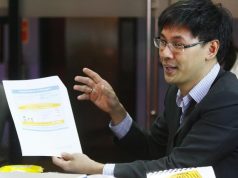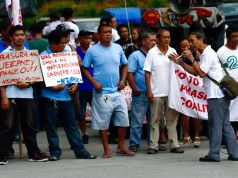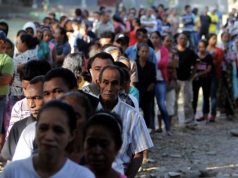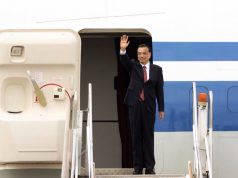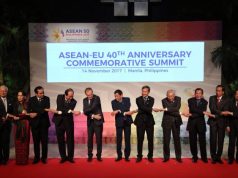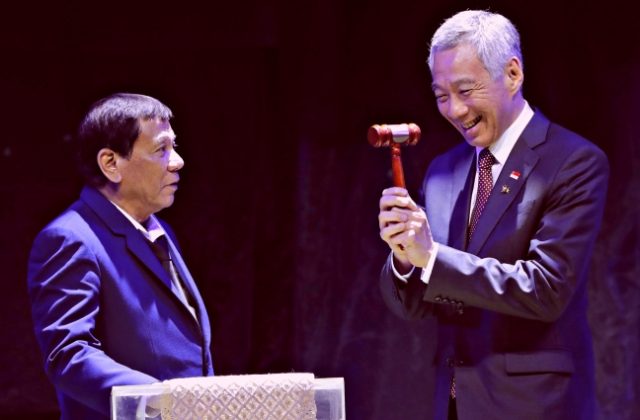
MANILA – Was the P15-billion tab picked up by the Philippines for hosting the 31st ASEAN and Related Summits worth it? Most experts agree it was, citing not just the international goodwill and reputation boost – which they deem priceless – but also the economic bonanza from investments and being able to set the agenda.
The good impression generated for the country and its people by the hosting is vital to any business, economists said.
As economist Ronilo Balbieran of the University of Asia and the Pacific (UA&P) puts it, “That’s your investment for your good faith that we are not just a statistic in the database of World Bank, IMF or ADB. We’re here and we’ve shown them that we’re not just a batch of people [with] nothing to do, so we’ve showcased our talents and skills, organizational skills.” It was significant, he said that, till the summit officially closed Tuesday (Nov. 14) night, “no one was hurt among the leaders,” considering the huge security nightmare of protecting 21 global leaders and thousands of delegates, businessmen and other guests. This, just weeks after the Armed Forces of the Philippines declared over the five-month Marawi siege by Islamic militants.
According to Alvin Ang, economist at Ateneo de Manila University, “the first thing you get out of it outside of the pure economic benefit is goodwill. Goodwill . . . even in accounting parlance,” where “you do something and you do it well and you attract more people for your business.” It is akin, Ang said, ” making a good impression. And that was something we were able to do since APEC two years ago.” Manila hosted the Asia Pacific Economic Cooperation Leaders Meeting in 2015.
Besides the good impression, hosting the 31st ASEAN Summit also represented actual investments.
UA&P’s Balbieran said it was a “show of good faith; so we’re investing in relationships and then we are investing on this one whole market since this is a market of 630 million people, the whole ASEAN.” He noted the number is “way larger than the whole of the European Union, which is around 500 million people.
“So all these other countries outside ASEAN have no choice but to associate themselves with ASEAN because they’re running out of people.”
He said the Philippines has long touted its advantages in order to lure investors to pour in money and create jobs. The country just needed to prove it can compete with the rest of the world.
The arrival of many world leaders in the country spells tremendous confidence in the Philippines, said Balbieran, noting that having most of the leaders flying in to personally attend the ASEAN events and not just sending representatives represented “concrete, strong signals that the leaders cannot miss this opportunity with the Philippine economy.”
He added, “and what we have been telling the world in the last five years – that everything is here, growth is here, people are here, the money is here – all those are being confirmed by them attending the summit.”
And, being host and ASEAN chairman, the Philippines controlled the matters tabled on the agenda of the leaders of 18 countries – as it was in APEC in 2015. This time around, the Philippines again had the chance to pitch the growth of micro small and medium scale enterprises (MSMEs) that account for over 90% of commerce in the country.
Alvin Ang said: “That’s why you need to spend on that because you are setting the agenda and if it’s a lousy set-up and organization, how can you attract affirmation to what you are proposing?”
He said the Philippines was “able to put forward a lot of its key agenda particularly in terms of trade with MSMEs which fits in our value chain expansion.”
Moreover, ASEAN leaders also signed on Tuesday a landmark document, the ASEAN Consensus on the Protection of the Rights of Migrant Workers, a fit for the Philippines, with its millions of overseas Filipino workers.
Allan Tanjusay, spokesperson of the Trade Union Congress of the Philippines (TUCP) and the Association of Labor Unions (ALU), said the signing of the consensus document has certain benefits, noting that the Philippines had been pitching this since 2007, when it hosted an ASEAN meeting in Cebu.
The Philippines was pushing then for better protections for its OFWs, many of whom had been experiencing problems in host countries like abuse by employers and recruiters.
Now, 10 years after, “we are lookiing forward [to have] action plans,” said Tanjusay. The ASEAN countries should have the appropriate laws and policy in their territories to protect the rights of migrant workers, of whatever nationality.”
Productivity loss
Meanwhile, some sectors wish to count the productivity and income loss posed by having an entire week declared as holidays to give way to the hosting of the 31st ASEAN and related summits.
Tanjusay said the holidays have particularly hit the informal sector workers like vendors and tricycle drivers. He noted that daily paid contractual workers, who must bear with “no work, no pay” policy abound in the National Capital Region, where most of the ASEAN events were centered.
In Ang’s view, however, this is all a small price to pay relative to the long-term investments represented by the ASEAN hosting.
“Upfront yes, we will have losses there; if you want the returns immediately you will not get it immediately. Those things you signed, you will not get them tomorrow; they’ll take a long time. It’s like an investment in that sense,” said Ang.





